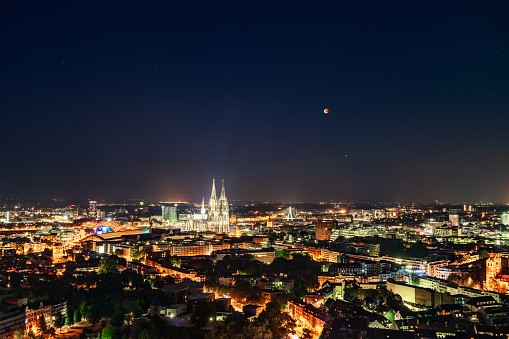We now live at an age where we don't have to exist in the dark anymore, literally. We have plenty of light sources to be able to see clearly even at night. However, there are certain places that might have too many lights. This can have negative effects on the living things in the area, but there are also ways to reduce those effects.

(Photo : Getty Images)
What is Light Pollution?
In the textbook definition, light pollution is the excessive presence of artificial light at night, which can disrupt natural light patterns. This can happen even when there is an adequate number of lights that are poorly designed and installed.
Artificial light can come from many sources. Mostly, you'll see them from streetlights, building lights, billboards, and vehicle lights. What people might miss is that even the smallest sources like smartphones and computers can also contribute to it.
What Are Its Effects?
One of the wider and more concerning effects of light pollution is the disruption of animal behavior. Many animals like birds and insects have a natural circadian rhythm that regulates their sleep cycles. That internal clock mostly relies on the day and night cycle.
With artificial lights on every corner, animals might not be able to tell whether it is morning or night, which can throw off their body clock. This can lead to migration issues, confusion, disorientation, and even decided mating, which can contribute to a drop in numbers.
It also puts their life at risk in a more direct way. Without the cover of darkness, prey can be more visible to predators as they are given an unfair advantage. When the animal population dwindles unnaturally, this can cause a whole set of new problems.
As for humans, it can also disrupt sleep patterns. We are designed to sleep at night, and our brain registers our surroundings with the presence of light to determine when it's time to sleep. With artificial lights from TVs, smartphones, and computers, our body clock can also be affected significantly.
This is why experts advise people to put away any gadgets 30 minutes before bed. The blue light that our screens emit can trick the brain into thinking that it's still daytime. Unlike animals, there are ways we can control how light pollution affects us.
Read Also: 8 Ways You Can Prepare for a Power Outage
How to Overcome Light Pollution
It's us humans who put artificial light into the world, which is why it is also within our power to snuff it out when needed. While there are large-scale issues that cannot be solved by just one person, there are small things we can do to prevent light pollution from harming us.
For one, we can easily turn off lights when we don't need it for doing tasks. It can help reduce energy usage as well. It would also be wise to use lower-wattage bulbs, especially if you don't need extra bright lights for the things you need to do in a certain area.
For uncontrollable light sources, you can use other methods like putting up blinds or curtains to shield yourself from the outside. This can be useful, especially for urban settings that tend to have lights on all the time during dark hours.
Related: Astronomers Speak Up About Light Pollution Brought by Space Debris










